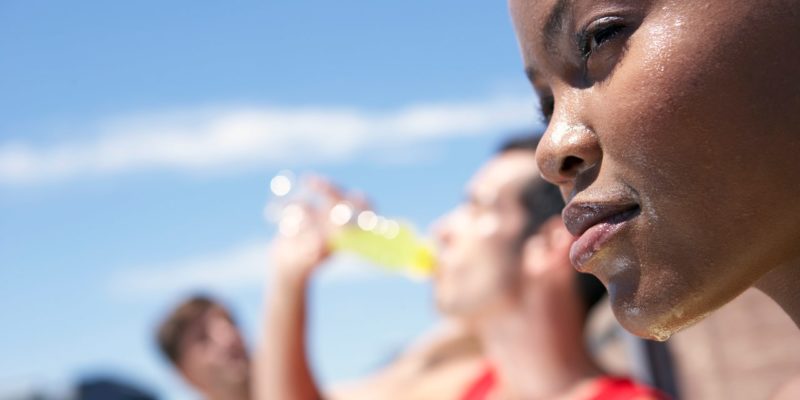
Niket Sonpal, a New York-based board-certified internist and gastroenterologist, says it’s best to stay inside to properly recover when you have any virus, whether COVID-19 or influenza. “If you have a virus and go outside during a heat wave, you can risk dehydration, heat stroke, and take a much longer time to recover,” he says. Additionally, if you do have COVID-19, he stresses that you should isolate no matter what, regardless of the temperature outside.
Since the COVID-19 vaccine can cause fever, Adalja says you may also be more comfortable indoors after the vaccine if you have air conditioning, and that while the heat wave won’t directly make your side effects worse, it may compound them. “It’s just two different uncomfortable things going on,” he says.
If you recently received the COVID-19 vaccine, Sonpal says it’s also best to stay in a cool environment, which will be more comfortable if you experience potential side effects. But if you haven’t been vaccinated yet, you don’t need to skip your appointment. “Don’t put off a vaccine appointment because it’s hot,” Adalja says.
How to prevent potentially serious symptoms
To avoid heat exhaustion and heat stroke (and to simply stay as comfortable as possible in the oppressive, hot weather), think preventatively. Barger Stevens recommends dressing in loose, lightweight, and light-colored clothing when outdoors — with as few layers as possible — and preloading with fluids before heading out into the heat.
If you plan to spend extended time outside, especially if you’ll be active, always aim for the morning (when the heat index is lowest) and take plenty of breaks, moving indoors or to a shaded area when you’re starting to feel overheated. As a general rule, avoid consuming excess caffeine and alcohol, both of which are diuretics and will further dehydrate your body, and replenish with plenty of fluids. Just keep in mind that you might need more than just water to replace what you lose through sweat.
“When we tell people to hydrate, they usually think of just replacing their lost fluids with water,” Barger Stevens says. “But since water alone doesn’t have enough sodium and potassium for your bloodstream, you’ll want to drink both water and sports drinks with electrolytes.”
Another important note: If you’re on any medication and plan to spend more than just a few minutes outdoors during a heat advisory or warning, double-check with your doctor that you’re not at risk for heat-related health issues. Barger Stevens says antihistamines, diuretics, seizure medications, ADD and ADHD drugs, and anti-hypertensive drugs can affect how the body retains fluid.